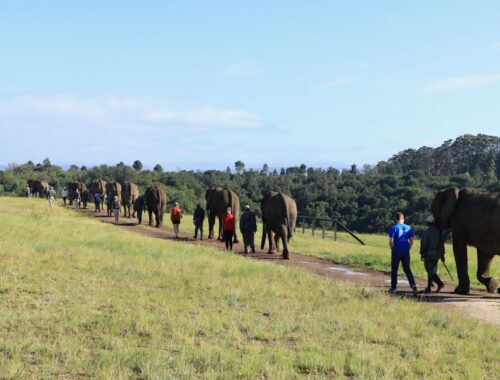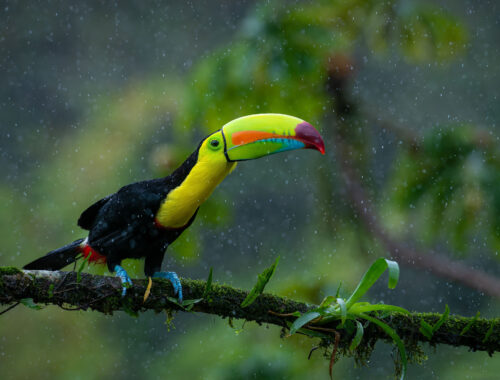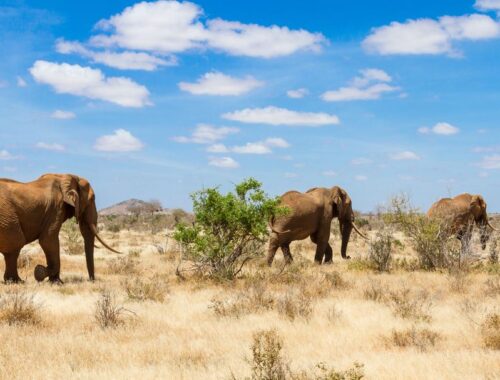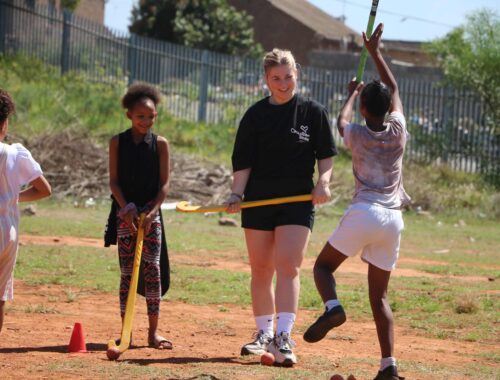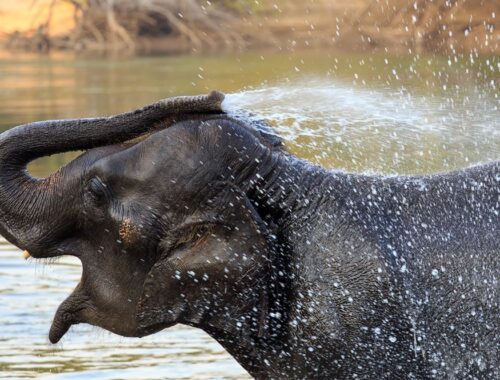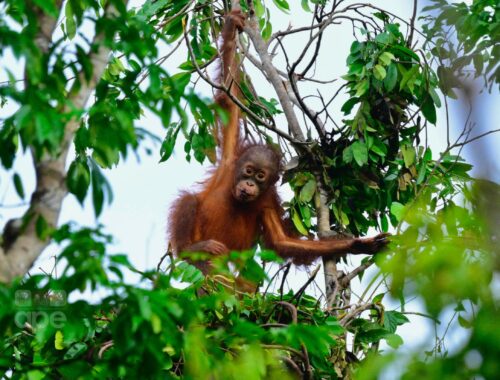Come to us with up to 75 participants! Step away from the typical tourist trail and delve into the heart of breath taking Sri Lanka, where endangered Asian elephants thrive in the wild. Collaborate with the local community to promote the conservation and survival of these magnificent elephants while enjoying the incredible experience of observing them in their natural habitat—a rare and unforgettable opportunity. Age 12+
Duration: 1 week
Dates: Arrivals throughout the year
Arrival day: Sunday
Return day: Sunday
Eligibility: General level of fitness required. You will walk some steep inclines
Age: 12+
Share with friends...
Highlights
- Breathtaking Sunsets and Sunrises: Experience the dramatic skies as the sun rises and sets over the stunning reservoir and majestic mountains.
- Scenic Travel: Journey to the project site by train and bus, passing through some of Sri Lanka’s most picturesque landscapes.
- Tree House Viewing Station: Climb to the tree house viewing station for a unique opportunity to watch elephants grazing peacefully in their natural habitat.
- Elephant-Friendly Transportation: Ride the elephant-friendly school bus, providing safe transport for children through elephant grazing areas.
- Community Involvement: Immerse yourself in local life, supporting both the human and elephant communities through hands-on conservation efforts.
At our wild elephant tracking project in Sri Lanka, we are well-equipped to host groups of passionate volunteers. Whether you’re coordinating a school trip, a research expedition, or a conservation-focused journey, we are prepared to provide an enriching experience for your group.
Group Accommodation
- Capable of accommodating groups, including large groups of up to 75 participants.
- Flexible with group sizes—let’s discuss your specific needs.
- Our facilities are fully equipped to accommodate groups without the need for special arrangements.
Age Flexibility
- Welcomes volunteers as young as 12 years, provided they are accompanied by adults and have parental consent.
Teacher-to-Student Ratio
- No specific preference for teacher-to-student ratios, as our experienced staff are skilled in managing groups.
Seasonal Availability
- Our projects run year-round, aligned with our ongoing wildlife research, conservation, and community initiatives.
Custom Pricing
- A 10% discount is available for children under 12 years; we can extend this to children under 16 years as well.
- Transfer packages available
Complimentary Participation
- Teachers participate for free, though there is a fee of £30 per person for visits to the national park.
A century ago, over 20,000 elephants roamed the lush forests and grasslands of Sri Lanka. Today, due to habitat destruction and increased farming, only about 5,000 elephants remain in the wild, outside of captivity. The elephant, a sacred symbol of Sri Lanka, faces a heart breaking decline.
By joining this award-winning charity, you will contribute to vital efforts aimed at ensuring the survival of elephants in their natural habitats. Collaborating with local scientists and conservationists, you will engage in various elephant conservation projects that focus on research and fieldwork, allowing you to witness these magnificent creatures in the wild.
Your hands-on experience will encompass critical activities in elephant research, observation, and preservation, all aimed at protecting these gentle giants for future generations. Sri Lanka, recognized as one of the top 25 most biodiverse countries, is home to a delicate ecosystem that this project aims to preserve.
Your days will be filled with exciting and varied tasks, including:
- Monitoring Elephants and Wildlife: Keep a lookout for elephants and other wildlife, including the elusive leopard.
- Trekking the Jungle: Follow the elephants’ grazing trails through the rich jungle terrain.
- Identifying Elephants: Photograph and document the individual elephants in the area for research purposes.
- Research from Tree Houses: Conduct observations from tree houses overlooking traditional elephant grazing grounds.
- Environmental Education: Teach school children about environmental awareness and conservation.
- Community Collaboration: Work with local communities to improve their coexistence with elephants.
- Wildlife Surveys: Carry out mammal and bird surveys to assess local biodiversity.
The stunning landscape where you will work is nothing short of breathtaking. You’ll trek through mountains, jungles, and wetlands, gaining a deep understanding of the elephants’ lives and their habitats. Engage with friendly locals, swim in pristine lakes, and explore lush terrains—all part of the magic of this remarkable project.
Are you looking for paid work in the conservation sector after volunteering or interning? Oyster have teamed up with our friends at Conservation Careers who support people to find paid work in conservation following study or a career change. You can add their fantastic and flexible course to your volunteering trip with Oyster. Your Oyster experience will help add interest to your conservation resume as an eye catching addition to your job applications in future!
- Delicious Meals Provided: Enjoy a variety of meals that offer a fantastic introduction to authentic Sri Lankan cuisine.
- Breakfast Options: Start your day with a selection of breakfast items, including toast, fresh fruits, and local staples such as dhal, rice, and curry.
- Lunch and Dinner: Savour hearty meals featuring rice, dhal, flavourful curries, and seasonal vegetables, providing a nourishing experience.
- Vegetarian and Vegan-Friendly: Most meals are vegetarian, with options for egg, fish, and soy as sources of protein. The kitchen is equipped to accommodate both vegetarians and vegans.
- Safe Drinking Water: Enjoy peace of mind with safe drinking water provided throughout your stay, ensuring your hydration needs are met.
Travel arrangements
Airport: Colombo (CMB)
Arrival day: Sunday
Departure day: Sunday
Included
- Access to your own personal ‘My Oyster’ account – our online portal where you can find out much more about the program and manage your booking
- Dedicated contact time with an experienced destination manager to discuss the project, answer any of your questions and for us to find out more about you
- Help and advice from our UK office before arrival and whilst you are away
- Pre-departure information covering medical, safety and project advice
- Gold level, 24/7 Pharos crisis management and incident support cover
- Financial protection: ATOL (if we book your flights).
- Thorough orientation on arrival
- In-country support
- Accommodation (see the ‘accommodation’ section above for details)
- Advice on visa requirements
- Oyster plants a tree in Africa with TreeAid to help reduce the impact of global carbon emissions
- Airport transfers to the project (6 hours)
- First night in a hotel (meals not included)
- Airport transfer from project on return (6 hours)
- Meals and soft drinks at the project site
On your return:
- Welcome home pack
- Certificate of Recognition (on request)
- References (on request)
Not Included
- Flights – as an ATOL bonded company, Oyster can book flights for you
- You need a valid passport that meets the requirements of the country you will be travelling to
- Insurance (covering your time with Oyster and any planned independent travel)
- Any costs associated with changing your return flight date if you need to
- Independent travel costs
- Home country travel costs
- Spending money for additional trips, food and entertainment
- Food costs when not at the project site
More Information
For some, the idea of volunteering in a Sri Lankan elephant orphanage might not resonate, but if you’ve always been drawn to elephants, this project offers a unique chance to support their survival in the wild. Engaging in this elephant conservation project provides a profound opportunity to make a meaningful impact. Not only will you contribute to the long-term protection of endangered elephants, but you’ll also participate in conservation efforts that are vital to preserving their natural habitats.
Imagine witnessing elephants daily as they graze peacefully or splash in waterholes—it’s a truly special experience. This sanctuary may be one of the last remaining places in the world where you can observe elephants living freely in their natural environment, surrounded by breathtaking wilderness.
Participating in this project is not just about gaining conservation experience; it’s about playing a crucial role in the fight to save elephants and ensure their future in the wild. Join us in making a difference for these majestic creatures!
Follow the link to learn why returned volunteer Natasha had a trip of lifetime.
The rise of agriculture to support a growing population in Sri Lanka has led to a dramatic reduction in the land available for elephants to live freely. As a result, these majestic creatures increasingly venture into farmland, causing significant destruction by feeding on crops. In fact, one elephant can undo months of a farmer’s hard work in just a single night.
This volunteer project focuses on protecting the boundaries between humans and elephants to create a sustainable future for both species. It emphasizes the importance of integrating humans and elephants, empowering local communities to reconnect with their country’s iconic wildlife.
Without the efforts of this volunteer initiative, the future of wild Asian elephants in Sri Lanka remains uncertain. Join us in our mission to promote coexistence and ensure a brighter future for both elephants and the communities that share their habitat.
Located in the heart of Sri Lanka’s central forests, you can expect a diverse climate with temperatures ranging from a cool 14 degrees Celsius during the wet season to soaring highs of 34 degrees Celsius in the dry season. On average, temperatures typically hover around 25 to 32 degrees Celsius, with unexpected rain showers occurring throughout the year.
Here’s a breakdown of the seasonal weather patterns:
- Rainy Season: Generally from October to January, characterized by increased rainfall and cooler temperatures.
- Summer Season: Typically from February to May, bringing warmer weather and rising humidity.
- Dry Season: Lasting from June to September, offering sunny skies and minimal rainfall, ideal for outdoor activities.
Understanding these climate variations is essential for planning your activities and ensuring a comfortable experience while volunteering in Sri Lanka.
No specific skills or prior experience are required to volunteer in Sri Lanka’s elephant conservation projects. However, participants should be prepared for the heat and high humidity typical of tropical jungles and must be willing to walk up to 7 km per day.
Volunteering takes place against the stunning backdrop of diverse ecosystems, including forests, wetlands, woodlands, jungles, and grasslands. While the terrain can be varied and sometimes challenging, these experiences add to the adventure of working in such a beautiful environment.
We simply ask that you bring motivation, enthusiasm, and adaptability to the team, as your positive attitude will greatly enhance the conservation efforts.
While Sri Lanka is one of the most westernized countries in South Asia, it’s essential to adhere to local cultural etiquette when volunteering with elephants. To ensure respect for local customs, please follow these clothing guidelines:
For Males:
- Wear knee-length shorts or trousers.
- Acceptable tops include T-shirts with high necks and short sleeves (please avoid vests).
For Females:
- Knee-length shorts, skirts, or trousers are required.
- T-shirts must have high necks and short sleeves (please refrain from wearing vests or spaghetti strap tops).
We kindly request that you do not pack any clothing that doesn’t align with these guidelines. Additionally, please avoid bringing clothes or gear in camouflage colours, as this is not culturally appropriate.
These are wild elephants and as such no interaction is allowed on this Sri Lanka elephant conservation programme. Oyster assesses projects carefully to ensure that they offer high standards of animal welfare and environmental practice. We also check that volunteers understand key points of good practice before working with animals. To find out more, see our animal welfare policy.
Volunteers should expect to spend around £30- 50 per week to include snacks, drinks and any trips.
You should make sure to take all of the money that you need with you, as there are no ATMs near the project site. There are not many opportunities to do any shopping whilst on the project site, so you should make sure that you have all that you need with you.
You will need to apply for a visa prior to departure. This is an easy process online and we will advise you on how to do this.
You need to make sure that your passport is valid for at least 6 months from when you arrive in Sri Lanka.
The project is located in an area considered to be a malarial risk zone. You should consult your doctor or travel nurse on advice on what precautions to take. Your routine vaccinations will need to be up to date, it is likely you will need Hepatitis A and Typhoid, and possibly Hepatitis B and rabies. Please follow your doctor’s advice.
Check below for where the closest hospital to the project is – your doctor may ask to know this so that they can provide information on rabies.
For any more information, including entry requirements related to Covid-19, please see the Fit for Travel website or the UK government’s travel advice page for Sri Lanka.
The closest medical facilities are 20 minutes drive from the project site. There is also a local doctor living in the neighbouring village who can offer initial medical support and treatment for minor illnesses and injuries.
Sri Lanka is a charming island nation, comparable in size to the Republic of Ireland, celebrated for its friendly locals who genuinely welcome visitors. As you explore the streets, don’t be surprised to be greeted with countless smiles and warm welcomes.
Colombo, the capital city, is a vibrant metropolis that stretches along the picturesque coastline. You will be staying just 2 kilometres from the coast in a cozy hotel with attentive and friendly staff. If your flight arrives early enough, you may have the opportunity to discover the city’s unique charm. Just remember to exercise caution when crossing the streets, as traffic can come from all directions!
The next day, your adventure begins as you are collected from the hotel and taken to the train station. You will embark on a scenic train journey to Kandy, renowned for its stunning landscapes. Upon arrival in Kandy, a bus will take you to the project site.
The project house is nestled in a beautiful valley near a local village. You’ll be accompanied by dedicated volunteer coordinators who live on-site and actively engage in fieldwork with you. Given that you will be working with elephants during the day, it is crucial to pay close attention to health and safety briefings and adhere to all guidelines for a safe and fulfilling experience.
The project house is located in a small village about 4 hours from the city of Kandy. There are smaller villages closeby with limited shops for snacks and drinks.
There is access to wifi at a nominal fee at the project house, but it can be intermittent.
There is good phone reception here.
Sri Lanka time is 5 and a half hours ahead of GMT (GMT +5:30)
In Sri Lanka, a mixture of British plugs and Sri Lankan plugs are used.
Supervision will be fairly intensive during the first few days, when you will receive a thorough induction and work-related training. Once you are comfortable with things, you might not always have a supervisor working alongside you, but there will always be staff and other volunteers around to help, and you will always be accompanied for any high risk activities.
Staff at Oyster’s head office and in-country will be responsible for your safety and welfare while you are at the project. This will start from the moment you are picked up from the airport until the day that you leave the project at the end of your stay. Before and after these times, you will be outside Oyster’s responsibility and should make sure that you act safely and avoid risk. This is also true if you choose to leave the project during your time off. We will give you plenty of guidance and advice about this.
Please note, in contrast to your time on the project, whilst you are in Colombo you will not be under direct supervision. We expect you to make sensible choices and follow our advice on staying safe.
Project Reviews
Read elephant volunteering reviews from Oyster participants from the fantastic Sri Lanka project:
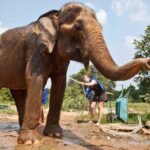 "I had such an incredible time in Sri Lanka, I didn't want to come home!! I met great people and learnt so much, it was truly amazing 🙂 Thank you for your help throughout."
"I had such an incredible time in Sri Lanka, I didn't want to come home!! I met great people and learnt so much, it was truly amazing 🙂 Thank you for your help throughout."
Beth, 2 weeks, August/September 2024
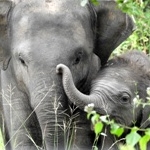 "This trip was really nice and the people so nice to my son and I. I want to thank you. And hope you can also let them know how wonderful it was. Hope Costa Rica will be as great as the people we met in Sri Lanka. The boss was such a kind person."
"This trip was really nice and the people so nice to my son and I. I want to thank you. And hope you can also let them know how wonderful it was. Hope Costa Rica will be as great as the people we met in Sri Lanka. The boss was such a kind person."
Isabelle and Lou...
Got a question or want to chat to Project Manager Kate who has first-hand experience of the project? Call +44 (0) 1892 771 973or email: – [email protected].
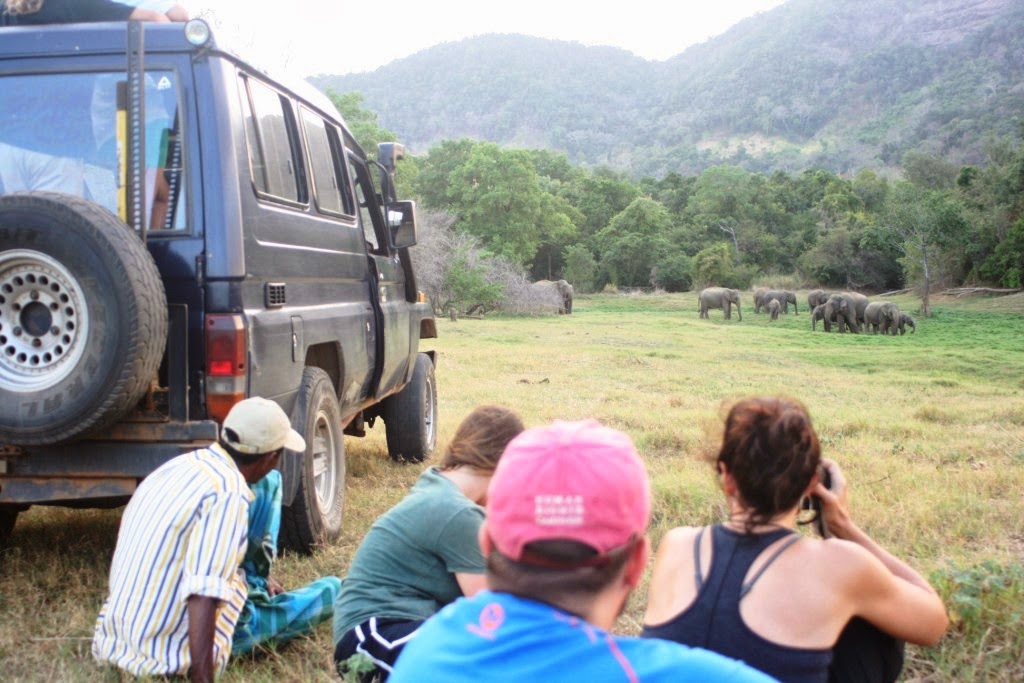









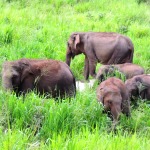 "Life here is lovely. Sri Lanka is so beautiful. Everyone here are so friendly. My stay so far has been with 3 other volunteers from different companies. We saw 25 elephants last Thursday at the national park, it was truly incredible. 😍😍 Our time is well balanced between conservation surveys, elephant observations and downtime to relax and read a book. I am feeling very peaceful and content here. All is great."
"Life here is lovely. Sri Lanka is so beautiful. Everyone here are so friendly. My stay so far has been with 3 other volunteers from different companies. We saw 25 elephants last Thursday at the national park, it was truly incredible. 😍😍 Our time is well balanced between conservation surveys, elephant observations and downtime to relax and read a book. I am feeling very peaceful and content here. All is great."
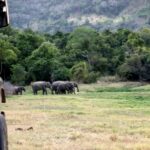 "My week here was both good fun and a great learning experience. I really enjoyed seeing the elephants at a national park and the butterflies on the butterfly survey walk. I learnt a lot about a way of life that I had never seen before and how Sri Lankan farmers are affected by the elephants. As a solo traveller to the project I was made to feel at home by all the friendly staff and volunteers. I also really enjoyed playing cricket with the locals."
"My week here was both good fun and a great learning experience. I really enjoyed seeing the elephants at a national park and the butterflies on the butterfly survey walk. I learnt a lot about a way of life that I had never seen before and how Sri Lankan farmers are affected by the elephants. As a solo traveller to the project I was made to feel at home by all the friendly staff and volunteers. I also really enjoyed playing cricket with the locals."
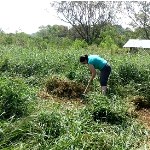 "I’ve felt very much part of the project here and the plight to improve human-elephant conflict through various activities. I think my favourite was working at the farm following a crop raid. There you can see a direct link and benefit to the farmer, with us clearing around the orange trees to allow them to grow and flourish."
"I’ve felt very much part of the project here and the plight to improve human-elephant conflict through various activities. I think my favourite was working at the farm following a crop raid. There you can see a direct link and benefit to the farmer, with us clearing around the orange trees to allow them to grow and flourish."
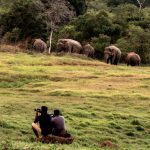 "We attended many activities that would help the people in the surrounding villages to avoid conflicts with elephants. We especially liked to join the surveys where we could ask the people directly how they live with elephants that still may come every night to their houses. It is interesting that they all still love elephants, despite all the destruction.
We also enjoyed all the friendly people of the project team who made us feel like in a big family!"
"We attended many activities that would help the people in the surrounding villages to avoid conflicts with elephants. We especially liked to join the surveys where we could ask the people directly how they live with elephants that still may come every night to their houses. It is interesting that they all still love elephants, despite all the destruction.
We also enjoyed all the friendly people of the project team who made us feel like in a big family!"
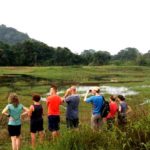 "Thank you so much for an incredible experience. We have learnt lots about your projects and all the good work you are doing here. Also will come away with much knowledge of wildlife and of course the elephants. Its has been the best magical experience to see them in their natural habitat…loved the tree house time. The staff and volunteers are all lovely…we will miss everyone!"
"Thank you so much for an incredible experience. We have learnt lots about your projects and all the good work you are doing here. Also will come away with much knowledge of wildlife and of course the elephants. Its has been the best magical experience to see them in their natural habitat…loved the tree house time. The staff and volunteers are all lovely…we will miss everyone!"
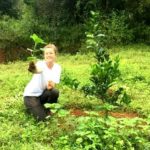 "This was our first experience in volunteer mission and we really enjoyed it! We learnt many things about the Sri Lankan culture, elephants and others animals. We met beautiful people and amazing staff. We really loved discovering the life of the people here and when we saw the elephants for the first time, it was a moment that we never forget! Thanks to everyone who make this experience beautiful!"
"This was our first experience in volunteer mission and we really enjoyed it! We learnt many things about the Sri Lankan culture, elephants and others animals. We met beautiful people and amazing staff. We really loved discovering the life of the people here and when we saw the elephants for the first time, it was a moment that we never forget! Thanks to everyone who make this experience beautiful!"
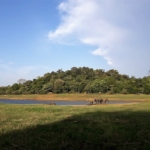 "Great adventure - so glad I did it! Obviously, observing the elephants in the wild was the biggest highlight, but it was also so interesting to learn about the results of their research and how they are putting strategies in place to help resolve the human elephant conflict."
"Great adventure - so glad I did it! Obviously, observing the elephants in the wild was the biggest highlight, but it was also so interesting to learn about the results of their research and how they are putting strategies in place to help resolve the human elephant conflict."
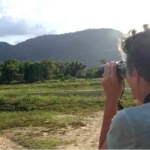 "What a wonderful adventure. Digging holes for orange trees, rebuilding homes, setting cameras, teaching English at the school and walking through streams looking for pug marks, waiting for the elephants in the tree hut and down by the water tank... Each staff member is kind, helpful, and willing to answer any and all questions.. I am grateful for my time spent here, the experience of sharing this time with others from around the world, and the challenges I faced and overcame"
"What a wonderful adventure. Digging holes for orange trees, rebuilding homes, setting cameras, teaching English at the school and walking through streams looking for pug marks, waiting for the elephants in the tree hut and down by the water tank... Each staff member is kind, helpful, and willing to answer any and all questions.. I am grateful for my time spent here, the experience of sharing this time with others from around the world, and the challenges I faced and overcame"
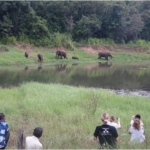 "The two weeks that I have had here have been hands down two of the best I've had. From inspecting dung all the way up to some truly magical experiences observing the elephants in the wild, I could not have asked for more from my time here. As a lifelong elephant-lover, to observe them in their natural environment was incredible. But I also feel I have learnt a lot about human elephant conflict and appreciate how vital resolving this is to the conservation of the creatures I hold so dear."
"The two weeks that I have had here have been hands down two of the best I've had. From inspecting dung all the way up to some truly magical experiences observing the elephants in the wild, I could not have asked for more from my time here. As a lifelong elephant-lover, to observe them in their natural environment was incredible. But I also feel I have learnt a lot about human elephant conflict and appreciate how vital resolving this is to the conservation of the creatures I hold so dear."
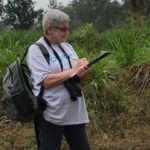 "I’ve enjoyed all the activities and learnt a lot both about elephants and Sri Lankan birds. The highlight of my stay was seeing 60 – 70 elephants including baby elephants and a fully grown splendid male. It’s a memory that will stay with me for a long long time. I’ve enjoyed meeting so many people from round the world and have been heartened by the passion for conservation of both volunteers and staff. It’s been a splendid trip!"
"I’ve enjoyed all the activities and learnt a lot both about elephants and Sri Lankan birds. The highlight of my stay was seeing 60 – 70 elephants including baby elephants and a fully grown splendid male. It’s a memory that will stay with me for a long long time. I’ve enjoyed meeting so many people from round the world and have been heartened by the passion for conservation of both volunteers and staff. It’s been a splendid trip!"
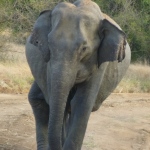 "There are no words for what I have experienced. Everything over there was much simpler and discovering the culture and the wildlife was something that I will treasure for the rest of my life!
Everything was very well organised. Arriving in a new country is always stressful but I felt like I knew that everything would work out and I knew what I was doing."
"There are no words for what I have experienced. Everything over there was much simpler and discovering the culture and the wildlife was something that I will treasure for the rest of my life!
Everything was very well organised. Arriving in a new country is always stressful but I felt like I knew that everything would work out and I knew what I was doing."
 "It was really great to meet like-minded people who care about animals and enjoy integrating themselves within new cultures. I loved seeing the elephants in the wild and talking to the local people about their experiences. I would really recommend it to people who are looking to travel alone for the first time as you meet people on the programme and can then organise trips with them at the weekend."
"It was really great to meet like-minded people who care about animals and enjoy integrating themselves within new cultures. I loved seeing the elephants in the wild and talking to the local people about their experiences. I would really recommend it to people who are looking to travel alone for the first time as you meet people on the programme and can then organise trips with them at the weekend."
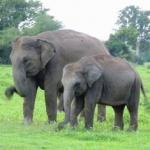 "It is very enlightening - you get to hear the community views about conflict with wildlife, and you get to collect data for scientific research."
"It is very enlightening - you get to hear the community views about conflict with wildlife, and you get to collect data for scientific research."
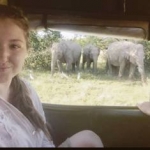 "My time in Sri Lanka was one of the most incredible experiences of my life! The people who work for the conservation project are absolutely wonderful, and I really enjoyed interacting with the other volunteers. Thanks for everything. I felt incredibly prepared and safe during my trip thanks to you guys! I would recommend you to anyone who is looking to volunteer."
"My time in Sri Lanka was one of the most incredible experiences of my life! The people who work for the conservation project are absolutely wonderful, and I really enjoyed interacting with the other volunteers. Thanks for everything. I felt incredibly prepared and safe during my trip thanks to you guys! I would recommend you to anyone who is looking to volunteer."
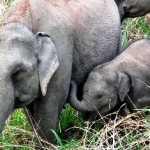 "This trip has been amazing and everything I hoped it would be. The organisation of transfers has been amazing. We have enjoyed the field work which is structured to the interests of the volunteers. The people here are lovely too! We have seen elephants on several occasions, and the magic of seeing them in their natural environment is an amazing unique experience! We have both praised Oyster's efficiency and support in making this trip possible, and will definitely be booking further adventures in the future."
"This trip has been amazing and everything I hoped it would be. The organisation of transfers has been amazing. We have enjoyed the field work which is structured to the interests of the volunteers. The people here are lovely too! We have seen elephants on several occasions, and the magic of seeing them in their natural environment is an amazing unique experience! We have both praised Oyster's efficiency and support in making this trip possible, and will definitely be booking further adventures in the future."
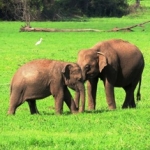 "I had an amazing time in Sri Lanka and I think the programme is great. All the people who work there are so friendly and there was a really laid-back atmosphere. I also met some really friendly volunteers. I'm so glad I found your website!"
"I had an amazing time in Sri Lanka and I think the programme is great. All the people who work there are so friendly and there was a really laid-back atmosphere. I also met some really friendly volunteers. I'm so glad I found your website!"
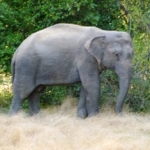 "I had a great time. Getting to see so many elephants up close and in the wild was amazing. Thanks for everything, you've been very helpful."
"I had a great time. Getting to see so many elephants up close and in the wild was amazing. Thanks for everything, you've been very helpful."
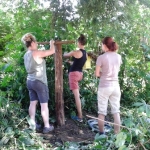 "Yesterday, I could see the nice lake with the sun rising - beautiful. Morning work was to build a beehive fence around a farmhouse and by midday we were ready with it. Just the bees are missing! In the afternoon, we were watching elephants at the dump, and we were lucky to see at last three different bulls. So you see, I'm having a great time here! Thank you for the good organisation and preparation for this project!"
"Yesterday, I could see the nice lake with the sun rising - beautiful. Morning work was to build a beehive fence around a farmhouse and by midday we were ready with it. Just the bees are missing! In the afternoon, we were watching elephants at the dump, and we were lucky to see at last three different bulls. So you see, I'm having a great time here! Thank you for the good organisation and preparation for this project!"
